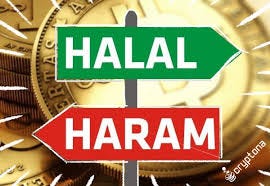Latest news about Bitcoin and all cryptocurrencies. Your daily crypto news habit.

In 2019 according to a PEW Report, the world populations are estimated to be approximately 7.7 billion people with over 2.1 billon of them being Muslim’s. That is over 25% of the world population. This is important as to pay attention to as the influence and growth of Islamic (Sharia) Law grows and becomes more relevant to all sectors of society.
According to the Religious Literacy Project of Harvard Divinity School, “Islamic law, or shari’a, is a series of principles that are interpreted, negotiated, and debated by legal scholars and adapted in the lives of Muslims in order to bring their actions in line with God’s vision for a just and good life.” The Literacy project, goes on to say that “Muslims understand the rules of shari’a to have been sent by God in the text of the Qur’an, but also made manifest in the hadith and sunnah, sayings of and stories about the Prophet Muhammad.”
Traditional Islam serves as a religious, cultural and practical code for life, and those who live within the strictest of its religious confines, see Sharia law as the backbone of society. Consequently, Islamic law creates the structure, to which lives, and decisions are made, thus regulating both personal, business and financial decisions. Literally, the world sharia means “the way.”
According to Thomson-Reuters, the global Islamic economy is projected to reach upwards of 3 trillion USD by 2021. Within this market, cryptocurrencies will play a role in the ever-emerging capitalization of global markets and trade. In this light, it is important to understand the issue of cryptocurrencies and their compliance with Sharia law. The Bank of London and the Middle East (BLME), a Sharia compliant bank, states that “the main principles of Islamic Finance are the avoidance of all haram (harmful) activities such as charging interest. In addition to the prohibition on charging interest, Islamic financial institutions must ensure that ambiguity (gharar) or gambling/speculation (maysair) is minimized in transactions and contracts.” In order to be complaint, cryptocurrencies must meet these standards, as well as additional crypto regulations.
As of today, there are three main cryptocurrencies that meet these standards and comply with Sharia law. The first and largest of the three is Stellar’s cryptocurrency Lumens (XLM). Today, XLM has a market cap of 474,723 BTC or $2,394,744,553 USD. This market share is bound to grow, as the Islamic marketplace opens, and cryptocurrencies become commonplace and understood to be Sharia complaint. XLM itself was certified by the Shariyah Review Bureau (SRB), while SRB itself, is licensed by the Central Bank of Baharain.
The second cryptocurrency currently having received Sharira approval, is OneGramCoin (OGC). OGC is a very small coin that is only traded on one exchange (Huulk) and trades at $55.49. It’s total market volume recently was $114.96k which is relatively small. However, it is Sharira complaint, and this shows a trend in the marketplace. Each OGC is backed by at least one gram of gold, and this is what makes it complaint. For, gold is one of the oldest Muslim trading currencies ever used.
The third of the three cryptocurrencies that are relevant for us and the developing Islamic cryptocurrency market is a Stablecoin from Swiss fintech startup X8 AG. This Ethereum based coin, which was also certified by the SRB is very new and will have to be watched closely in the coming years in order to grasp its market civilization and saturation within the Islamic marketplace. Just recently, there have been discussions to expand X8 into Abu Dhabi, Dubai, and Bahrain.
A further indication that cryptocurrencies will be playing an important role in the future of the global Islamic economy is the plans of UAE based financial service firm ADAB Solutions to launch a Shairah complaint cryptocurrency exchange. ADAB is calling its platform FICE, which is short for, First Islamic Crypto Exchange. While this exchange will initially be aimed towards the 2.1 billion Muslim population, it will eventually be operating globally and available to all end users.
As we can see, the Islamic based economy is opening itself up to the digital world of cryptocurrencies, while at the same time, both new and longer established coins are trying to saturate the market by becoming Sharia complaint. It will be interesting to track these developments over the upcoming years, especially as Islam begins to rival Christianity as the world’s largest religion and thus a globally influential marketplace.
Cryptocurrenices and Sharia Law: Halal or Haram? was originally published in Hacker Noon on Medium, where people are continuing the conversation by highlighting and responding to this story.
Disclaimer
The views and opinions expressed in this article are solely those of the authors and do not reflect the views of Bitcoin Insider. Every investment and trading move involves risk - this is especially true for cryptocurrencies given their volatility. We strongly advise our readers to conduct their own research when making a decision.